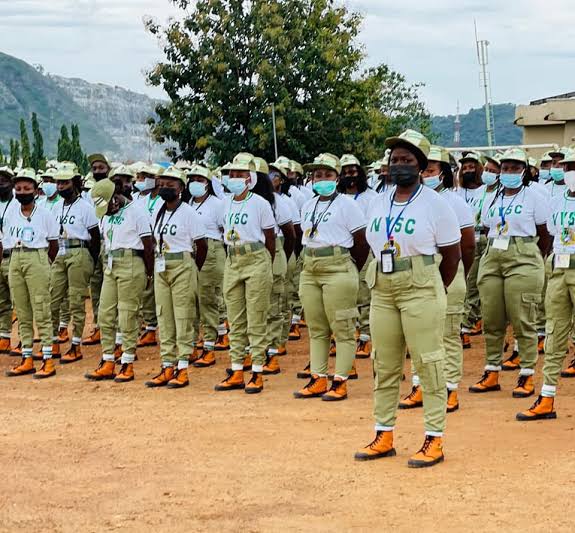Nigeria's National Youth Service Corps (NYSC) represents one of the boldest experiments in nation building through youth mobilisation. Born from the ashes of a devastating civil war, this program has shaped the experiences of millions of Nigerian graduates. Considering its evolution over the decades, I believe it's time to examine how this ambitious vision has fared against Nigeria's complex realities.
The story of the NYSC begins with Nigeria's darkest chapter. Between 1967 and 1970, the Nigerian Civil War. The war claimed over a million lives and threatened to tear the young nation apart along ethnic lines. When the guns finally fell silent, the country faced a monumental task. How to rebuild not just infrastructure, but trust between its diverse peoples.
General Yakubu Gowon's military administration introduced the NYSC in 1973 as a direct response to this challenge. Think about it, what better way to heal a fractured nation than to send young graduates to live and work in unfamiliar cultural environments? A yoruba graduate posted to an Igbo community, an Igbo graduate sent to a Hausa area. This cross-cultural immersion was designed to break down stereotypes through direct experience.
The words of Yakubu still resonate today, "The NYSC is designed to inculcate in Nigerian youths the spirit of selfless service to the community, and to emphasise the spirit of oneness and brotherhood of all Nigerians, irrespective of cultural or social background."
This wasn't just another government program, it was a deliberate strategy to heal a wounded nation through the energy and idealism of its youth. The NYSC's original design was ingenious in its simplicity yet ambitious in its goals. The specific goals are:
1. Cross-Cultural Immersion: Fresh graduates would be posted to states different from their origins, making them live and work in unfamiliar cultural environments.
2. Three-Phase Structure: A 3-week orientation camp featuring physical training, cultural activities, and civic education. An 11-month primary assignment in schools, hospitals, or government offices and Community Development Service(CDS) where corps members implemented local projects
3. National Consciousness: Through shared experiences and the iconic NYSC uniform, young Nigerians would develop an identity that transcended ethnic affiliations.
By sending Itsekiri graduates to Igbo communities, Igbo graduates to Hausa areas, Yorùbá graduates to Edo and so on, the program aimed to dismantle stereotypes through direct experience. And by deploying educated youth to underserved areas, it simultaneously addressed development needs across the country.
As well intended as the program was, it has not been without challenges. Despite challenges that have emerged over time, the NYSC has produced countless success stories that demonstrate its potential. Some of the recorded stories are:
Bridging Healthcare Gaps
Dr. Ibrahim (Not real name) arrived at a small riverine community in Bayelsa to find a primary healthcare center that had been without a doctor for years. Rather than seeking redeployment (as many would today), he embraced the challenge. By the end of his service year, clinic attendance had tripled, and maternal mortality had dropped significantly. The community honored him with a traditional title, an unusual gesture that reflected his profound impact.
Today, Ibrahim runs a medical NGO serving rural communities across Nigeria, directly inspired by his NYSC experience. His service year didn't just change one community; it shaped his entire career trajectory.
Educational Transformation
Corps members have been the backbone of Nigeria's educational system for decades, particularly in rural areas. In some northern states, they constitute over 40% of the teaching workforce in public schools. Their contributions have been especially valuable in subjects like mathematics and sciences, where qualified teachers are often scarce.
One corps member I spoke with, a physics graduate posted to a rural school in Jigawa, described how none of her students had ever conducted a scientific experiment before her arrival. By improvising with locally available materials, she introduced practical demonstrations that transformed her students' understanding. Three of those students later won a local science competition in their State and they might never have without her influence.
Entrepreneurial Catalysts
The NYSC's Skill Acquisition and Entrepreneurship Development (SAED) program has trained thousands of corps members in various vocational skills. Many successful businesses across Nigeria trace their origins to this training.
Take the case of Adebayo, who learned soap making during his service year in Kano. What began as a side project to supplement his allowance evolved into a manufacturing company that now employs fifteen people and supplies products across the North. His business partner is a local entrepreneur he met during his service year, a partnership that might never have formed without the NYSC's cross-cultural deployment.

Looking beyond these individual stories, the NYSC has made significant contributions to Nigeria's development;
1. Educational Impact
For nearly five decades, corps members have taught millions of Nigerian children, often in locations that would otherwise struggle to attract qualified educators. Their contributions to literacy and numeracy in rural areas represent one of the program's most tangible achievements.
2. Healthcare Delivery
Medical and paramedical graduates deployed through the NYSC have substantially improved healthcare access in marginalised communities. From conducting immunisation campaigns to staffing rural clinics, corps medical personnel have saved countless lives and improved health outcomes nationwide.
3. National Integration
Thousands of inter-ethnic marriages have resulted from relationships formed during the service year. These unions create powerful cross cultural bonds that extend to extended families and communities. Business partnerships and professional networks established during NYSC have similarly created economic ties across regional boundaries.
4. Infrastructure Development
Through community development projects, corps members have built classrooms, clinics, bridges, markets, and other essential infrastructure. These tangible contributions have improved quality of life in many marginalised communities and demonstrated the power of youth mobilisation for development.
5. Crisis Response
During natural disasters and public health emergencies, corps members have proven invaluable as first responders and community educators. Their contributions during disease outbreaks, including the COVID-19 pandemic, demonstrated the program's capacity to mobilise educated youth for national challenges.
Despite these achievements, anyone familiar with today's NYSC knows it faces formidable challenges that threaten to undermine its founding vision:
Security Concerns
Nigeria's security landscape has changed dramatically since 1973. The emergence of Boko Haram, banditry, kidnapping, and communal conflicts has made some regions increasingly dangerous for corps members.
Consider Aisha's experience in Zamfara last year. Posted to the Legal Aid Council, her service year was dominated by security restrictions that severely limited her movements and community interaction. News of nearby bandit attacks eventually prompted her family to secure her redeployment to the state capital, a process that, unfortunately, required unofficial payments.
This scenario plays out thousands of times annually, with many corps members rejecting postings to certain states or seeking redeployment through official and unofficial channels. The consequence is a gradual erosion of the program's cross cultural mission, as deployments increasingly cluster in perceived "safe" areas
Corruption
Various forms of corruption have infiltrated the scheme. A shadow economy around manipulating postings has emerged, with corps members paying bribes to avoid "unfavorable" locations. Funds allocated for corps members' welfare sometimes disappear into private pockets and some employers exploit corps members as free labor without providing promised training or mentorship.
Economic Hardships
Nigeria's economic challenges have diminished the program's appeal and effectiveness. Although the monthly allowance (approximately ₦77,000) was recently increased from N33,000, it still falls significantly below living wages in most areas due to the rising cost of living. With high unemployment rates, the service year no longer serves as a reliable pathway to employment and many graduates view the mandatory year as delaying their professional development in an increasingly competitive job market.
Evolving National Landscape
Several broader changes in Nigerian society have complicated the NYSC's mission. Technology has transformed work and learning in ways not contemplated in the program's original design, educational expansion has increased the number of graduates exponentially, straining the program's infrastructure and urbanisation has shifted development needs from rural to urban centers
The Path Forward
Despite these challenges, I believe the NYSC's core vision remains relevant. Nigeria still needs mechanisms to foster national unity and mobilise youth for development. But the program requires thoughtful reforms to adapt to contemporary realities. The proposed recommendations are:
1. Security Conscious Restructuring
Develop a more flexible deployment model that maintains cross cultural exposure while accounting for security realities
Establish dedicated security arrangements for corps members in higher risk areas
Implement comprehensive insurance programs for all participants
2. Economic Relevance
Increase the monthly allowance to reflect economic realities
Align deployments more closely with graduates' skills and national development priorities
Expand partnerships with private organisations to provide meaningful assignments and potential employment pathways
3. Transparency and Accountability Implement digital systems to reduce human interference in postings and monitoring
Develop metrics to evaluate the program's effectiveness in achieving both integration and development goals
Institute stricter penalties for those who subvert the program's processes
4. Innovation and Flexibility
Consider blended service models combining physical presence with remote contributions for areas with severe challenges
Shift emphasis from time served to impact created through focused development projects
Explore partnerships with similar youth service schemes in other African countries
The NYSC is a legacy worth fighting for because it represents one of Nigeria's most visionary attempts at nation building through youth engagement. Its founding premise that shared service can transform individual perspectives and forge national unity remains as powerful today as it was in 1973.
The program's achievements in education, healthcare, infrastructure development, and cultural integration demonstrate its potential when properly implemented. Yet insecurity, corruption, economic challenges, and evolving national realities have increasingly compromised its effectiveness.
As someone who believes in the transformative potential of youth service, I argue that the answer isn't to abandon the NYSC but to reimagine it for contemporary Nigeria. With thoughtful reforms and renewed commitment to its founding principles, this program could once again serve as a powerful catalyst for national integration and development.
The NYSC's journey mirrors Nigeria's broader struggle to honor founding aspirations while adapting to changed realities. How we navigate this challenge may determine whether future generations of Nigerian youth will experience national service as a transformative opportunity or merely as a bureaucratic requirement to be endured.
What do you think? Has NYSC achieved its goals, or is it time for a complete overhaul? Have you served in the program yourself?

